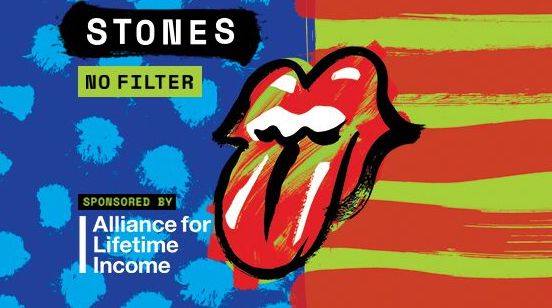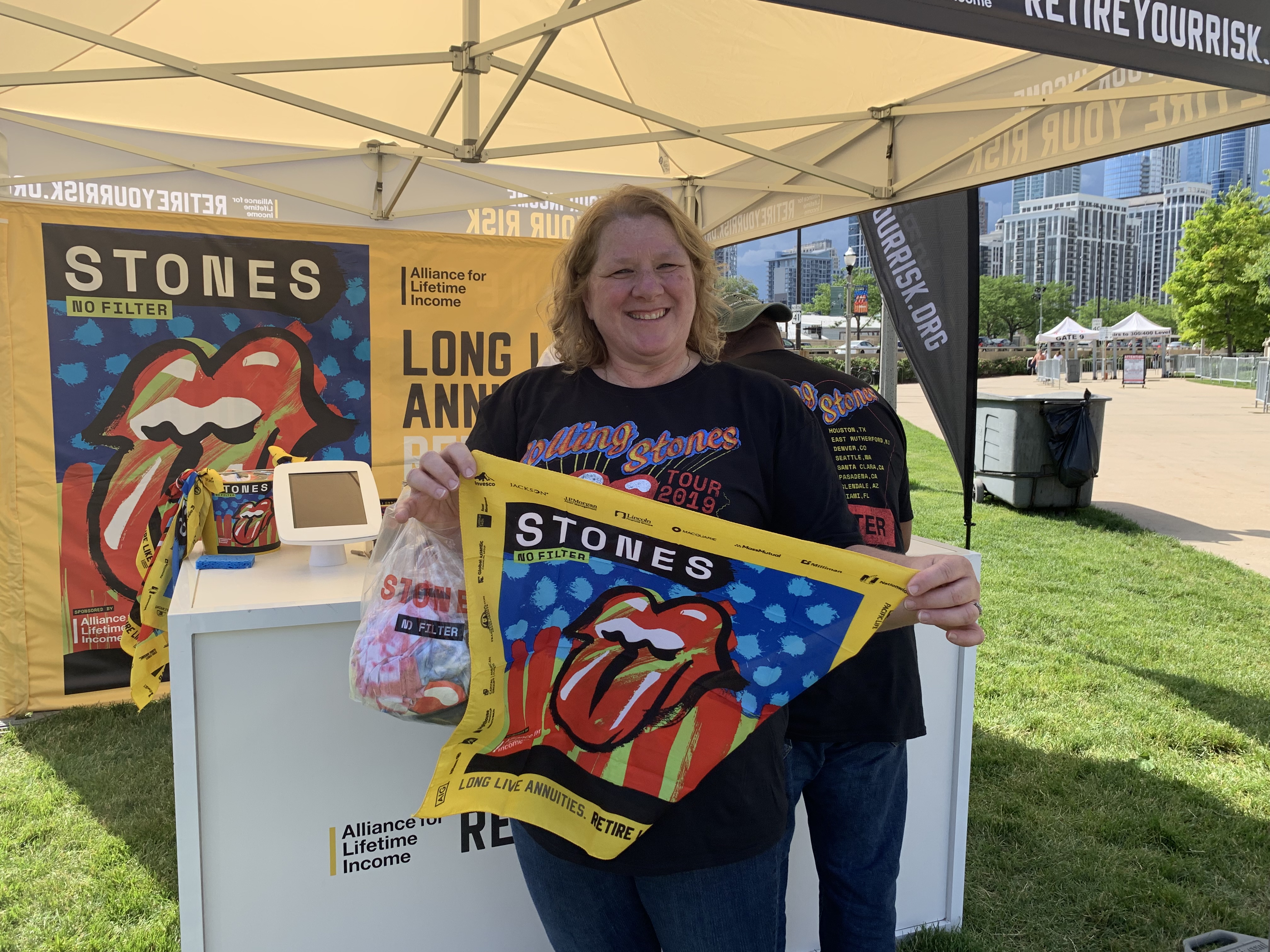 Shortly after the Rolling Stones announced the 2019 U.S. edition of their No Filter tour, news arrived that the tour’s sole sponsor was not a cell phone provider, beer, or cologne, as had been in the past. This time, a nonprofit organization stepped up. And if you hadn’t heard of the Alliance for Lifetime Income before, it may very well be because the organization is far newer than the band’s most recent studio album.
Shortly after the Rolling Stones announced the 2019 U.S. edition of their No Filter tour, news arrived that the tour’s sole sponsor was not a cell phone provider, beer, or cologne, as had been in the past. This time, a nonprofit organization stepped up. And if you hadn’t heard of the Alliance for Lifetime Income before, it may very well be because the organization is far newer than the band’s most recent studio album.
You’re certainly aware, though, of many of the nation’s leading financial services companies who formed the association just over a year ago to help Americans prepare for their retirement income.
The Alliance for Lifetime Income is focused on helping educate Americans on the risks of outliving their income so they can enjoy their retirement lives. “Sure,” says Cyrus Bamji, the Alliance’s head of communications, “there’s social security and, if they’re fortunate, some people have pensions, although that’s an increasingly rare [circumstance] for those working in the private sector.
“Our message to most Americans is: If you want to keep doing what you do and [enjoying] life – whether you call it retirement or just the next phase of your life – if you want to keep doing it, you’ve got 20, 30, 40 years potentially to go. How are you going to pay for that?
“It’s why the Alliance was created: people talk about a retirement savings crisis… well, we believe it’s a retirement income crisis.”
It’s something that can be fixed with planned, protected income.

Fans at the Alliance for Lifetime Income pre-concert activation area, MetLife Stadium, E. Rutherford, NJ, August 1, 2019
“Americans are saving, even at the lower end of income levels,” says Bamji. “The problem is they’re not saving enough.” Many people with money in their employer’s 401(k) aren’t necessarily diversified.
“Because of market volatility—and we’re seeing that in the past few months, yet again—and you get to a point where you are going to retire and say you [expect to] have a half a million dollars, a million dollars, whatever it may be in your retirement account, when you get ready to retire, that money isn’t worth half a million or a million if the market’s down.
“So the problem of where you’re putting your savings is that you’re at the whims of the [stock] market. At one time, most Americans had pensions, which are a form of protected lifetime income,” he says. “You worked for a company for however long… 20, 30 years… and when you retired, there would be a check that came to you every month for the rest of your life.
“You could count on [the pension] and your social security, and know you’d have something to cover your electric bills, your mortgage—and a lot of seniors still have mortgages and payments at that age—and never have to worry about that. You could take the rest of your money that you have in savings, invest it, and take a little more risk to help keep it growing.
“The problem is: pensions are virtually gone. Today, only 17% of private sector workers have them. So what’s happened is, we’ve moved from having a guaranteed retirement income, to a defined contribution society: 401(k)’s, which is all on you. And there is no part of peoples’ savings these days—unless you have an annuity—that allows for that protected lifetime income that you can always count on.”
63% of Americans will be unprotected in retirement. They stand a very good chance of running out of money in retirement because they’re going to live a lot longer than they think.
Annuities are a form of protected lifetime income.
“[They’re] the only way that you can get an investment that will guarantee that you’ll keep getting that protected lifetime income. Our message is: make sure you’ve covered your bases [beyond] social security. Otherwise, you stand a very good chance of running out of money. And this isn’t to say you put all your savings into an annuity, but it’s carving out a piece of whatever you save, for peace of mind.”
The companies that are members of the Alliance, are some of the largest financial services companies out there. But it also includes partnerships with other non-profit companies. They don’t advocate for a particular type of annuity or a particular company that sells annuities.
“You can start whenever you’re ready. But the point is to start,” says Bamji. “And that’s where the Rolling Stones sponsorship came along. The reason we’re doing this is to reach the 1.5 million fans that are going to the 16 U.S. concerts, as well as the social media, and so forth. Our message for those folks is very clear: If you want to keep living life to the fullest like the Stones do… Yes, you may not have the money that the Stones have, but the fact is you’ve got to invest in something that you can count on for the rest of your life.”
Mick Jagger, Keith Richards, Charlie Watts and Ronnie Wood are each well into their 70s.
“It’s one of the reasons why we wanted to sponsor the tour,” says Bamji.” “They kind of personify living life to the fullest.

A fan shows some of her swag at the Alliance for Lifetime Income activation booth, Soldier Field, Chicago, Ill., June 25, 2019
The Alliance made a big commitment to the tour sponsorship that includes significant on-site fan activation opportunities. Then on March 30, just three weeks before the scheduled April 20 start, Jagger made the surprising announcement about his health.
“His folks were fantastic,” says Bamji. “We [quickly] rearranged things that we needed to do from an operational perspective.”
People need to think: “it can happen to me.”
“When Mick posted the clip of himself dancing and rehearsing just 30 days after the procedure, I think the message was that even with all the issues that we have as we age, the bottom line is with medical advances and with the way we’re living healthier you can continue living life to the fullest.”
— Mick Jagger (@MickJagger) May 15, 2019
“That’s why we’re so thrilled to be sponsoring them,” says Bamji.
After a surprisingly quick two-month delay, the tour began on June 21.
The tour’s 17 dates – there was also one in Canada – are spread out over a whopping 73 days, with the final concert scheduled for August 31. Tickets for the remaining dates are available here and here.
Related: Review – The Stones defy age with spectacular MetLife Stadium concert






No Comments so far
Jump into a conversationNo Comments Yet!
You can be the one to start a conversation.